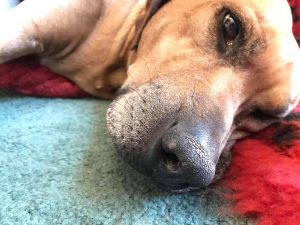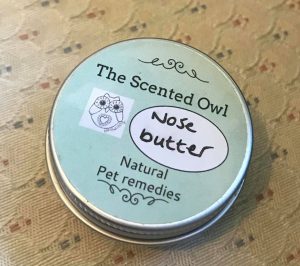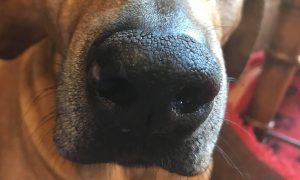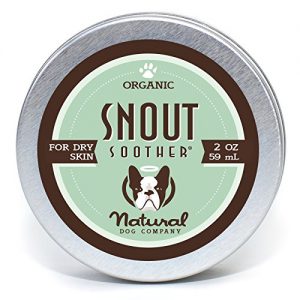So far as your dog is concerned, his nose is his most important organ. When it is dry, cracked or damaged in any way, that’s a big deal. We often use our dogs’ noses as an indicator as to whether they are well or not. Many people go with the concept that a wet nose is good, and a dry nose is bad, when in actual fact the surface of the nose can change with many things including the humidity, time of day or what he was doing and it doesn’t necessarily denote a problem. If you check your dog’s nose when he wakes, you will probably find that it is dry. This is because he naturally licks his nose throughout the day to keep it moist but, while sleeping, this does not happen and so the nose dries out as you’d expect. This is not a cause for concern and as soon as his normal day begins, it will promptly return to its normal cold, wet state.
There are, however, some things that you should take notice of such as excessive dryness of the surface of the nose causing it to become cracked or bleeding. Some things do of course need a trip to the vet including things like bleeding or green discharge from the nostrils or the nose flesh itself, the dog rubbing his face or scratching at his nose, or if you see an actual change in texture of the surface of the nose, thickening of the skin or even growths.
The causes for such changes can be quite varied, from those which are easily fixable, to the more serious. Just as we have triggers than can “set us off” so to do our dogs and they can be very varied indeed including:
* a new type of food
This can be a problem not only from the point of view of ingesting something that doesn’t quite agree with him on the inside, but also if contact with the food on the surface of his nose as he pushes it around his dish is causing him irritation.
In order to keep the mucus membranes in tip top shape, all animals need to keep a good level of hydration. It is essential to keep a source of clean, fresh water available for your dog at all times. Failure to do so will quickly cause dehydration and in turn, the nose will suffer.
* central heating
* autoimmune problems such as Pemphigus or Lupus
Some autoimmune problems can affect the nose in this way and often they also affect other parts of the body too so you may also notice hair loss in some areas, blistering, bleeding, blackened flesh or thickening of the skin. It is however, likely to take a battery of veterinary tests to pinpoint the exact type of autoimmune problem but once this has been established, medication can be commenced and usually fixes the problem.
* Infection
When you think of the surface of the nose its easy to understand how such an organ can become infected. If you have a warm, moist surface that frequently comes into contact with food, genital organs, urine or faeces as a dog’s nose does, then any wound or damage to the surface of the skin very quickly admits germs. The environment is perfect for bacteria to breed so if it takes hold, it often multiplies very quickly. If a wound or damaged area has become infected, treatment from your vet should be sought immediately.
So what should you do?
Hopefully, the information above will give you a few ideas as to what MAY be the problem. If you think it could be an autoimmune problem or tumour, then obviously a visit to your vet is urgent. If you think its down to a food allergy, change his diet or see your vet for further investigation to detect the food he is intolerant to. Do you clean his food and water dish regularly? If not, lets start TODAY 😉
Things you can try to soothe the nose go from purpose made remedies like this one
through to the more everyday things such as Coconut Oil or even common-or-garden Chap-Stick.
The key to the application of any of these topical products of course is that you MUST keep the mouth and muzzle tightly closed as you apply it. You need time to rub in the product so that at least some of it gets the chance to be absorbed before your dog is able to lick it straight off again. Good luck with that!
We recently suffered with this problem after our tour away in the motorhome for 2 weeks teaching in Scotland. Two out of three of my dogs got dry, cracked noses due to the cold nights and the heating coming through the vents as they slept. After 3 days of coconut oil application, Axl’s nose went from cracked and actively bleeding, to this (but I did have to hang on to his muzzle like a crocodile wrangler to get the oil on for long enough before his tongue appeared like an electric eel!) Another few days, and I’m sure all will be well 😉
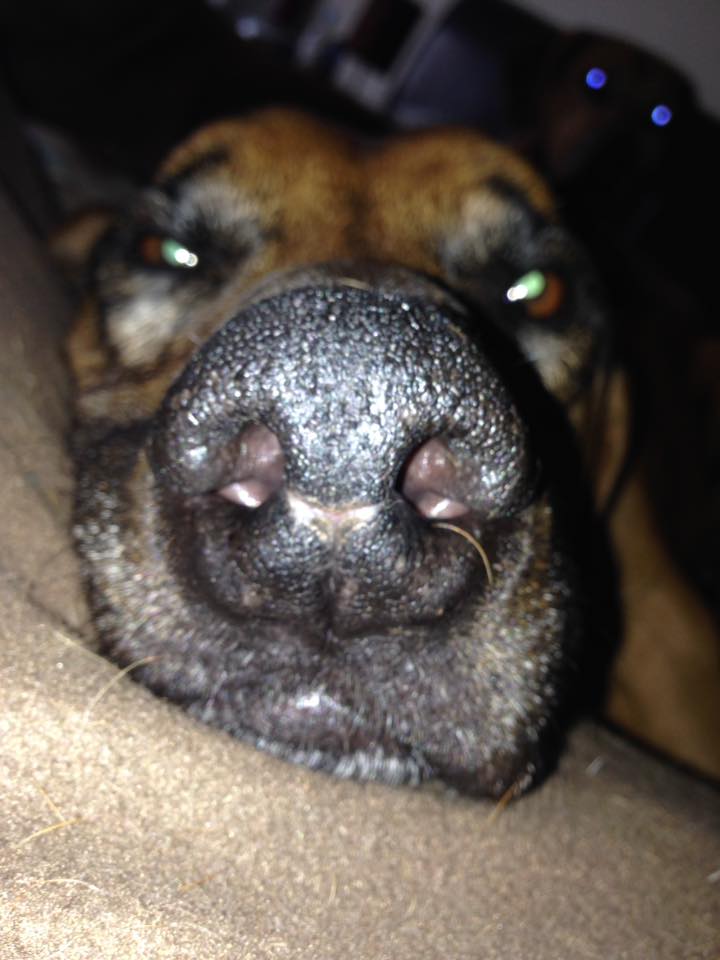
UPDATE: 20/4/2020
Rain, who is now 10.5 years old, is currently experiencing a very dry and cracking nose. I have been using various natural products by the lovely people at The Scented Owl and today started using their nose butter to help. It smells DIVINE and after just one use, the nose was already blacker and clearly benefited from the balm. It get’s the “Rain-Bob approval”
